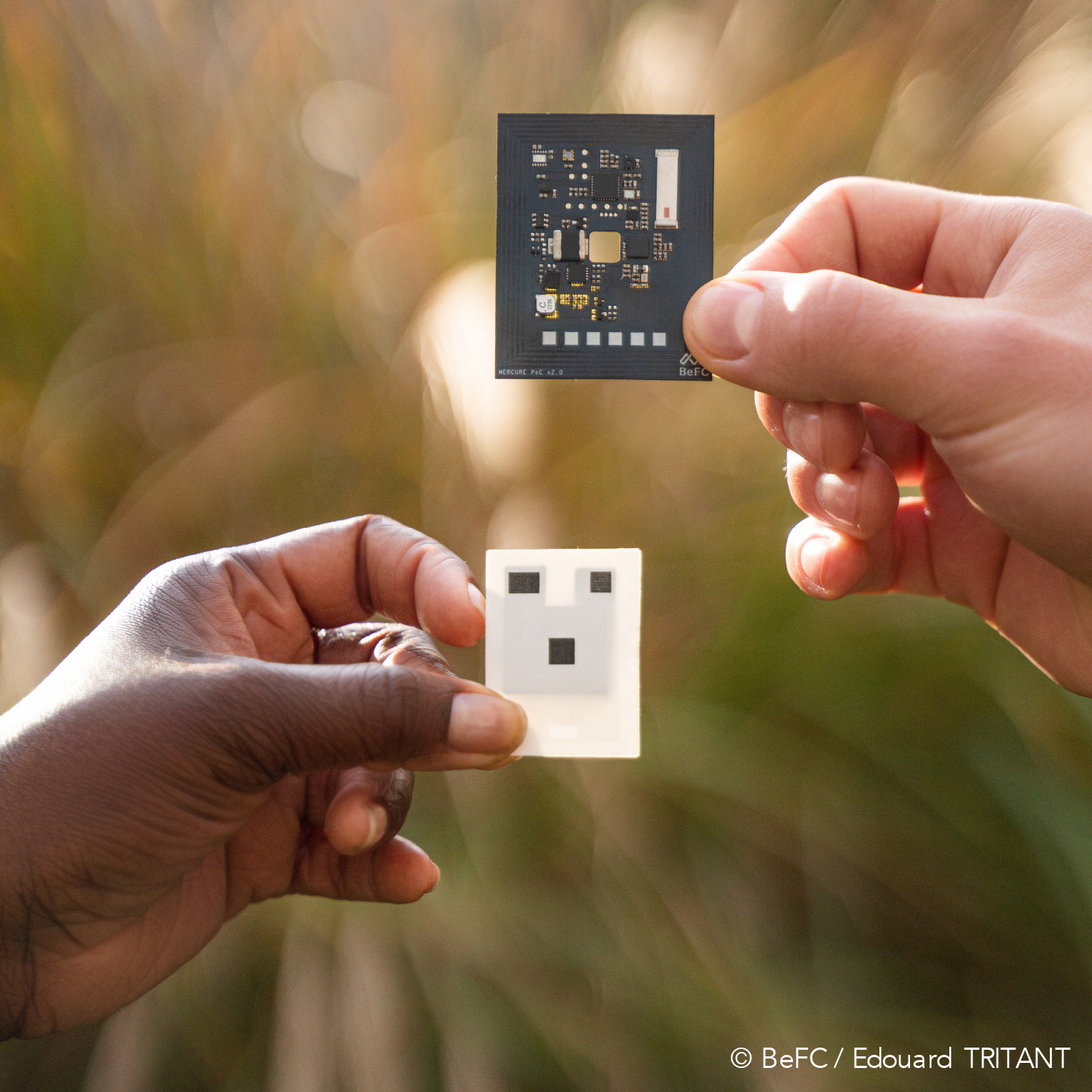BEFC
Eco-friendly Paper-based Biofuel Cell



Benefits
- Reinventing the way we power disposable electronics for a sustainable future
Key words
- Sustainable
- Paper
- Energy
- Microfluidic
Intellectual Property
- 5 patents
Partnerships & Rewards
- 2020 i-Lab French Deeptech Innovation Competition Winner
- 2021 i-Nov French Deeptech Entreprise Competition Winner
Laboratory
- DCM
Institutions
- CNRS
- UGA
Linksium Continuum
- Maturation
- Incubation
- Acceleration
Results
- Incorporated startups
Context
The Disposable Devices Market is evolving. Electronics integration in disposable devices has become increasingly important. The button or coin cell power sources used are difficult to recycle, toxic or dangerous to the environment. The development of safe and ecological devices is often a barrier to the progression of single-use and single-patient devices.
We offer a sustainable and eco-friendly solution for practical energy generation whilst minimising impact to the environment. We believe our approach will not only allow the replacement of batteries or conventional fuel cells for existing applications, but also open up new opportunities for low-power ultra-thin health monitoring and Internet of Things (IoT) applications.
Technology
We have invented a paper-based, ultra-thin and portable biofuel cell system that uses biological catalysts instead of chemical or expensive noble metal catalysts to convert natural substrates such as glucose and oxygen into electricity. Our device exploits enzymes, carbon electrodes and paper microfluidics, all of which provide a sustainable and environmentally-friendly method of generating energy. The devices can be operated with just a drop of solution, from tap water to biological fluids.
Advantages
- Ultra-thin paper energy source
- Available in a wide range of formats and performances
- Biological catalysts
- Sustainable materials and fuels
- Environmentally friendly / non-toxic
State of progress
Our current devices produce up to 1 mWh.cm-2 with just 100 µL of liquid, such as urine. At present we are working towards integration with single-use devices such as digital ovulation tests. We now seek industrial partners to begin feasibility studies.

